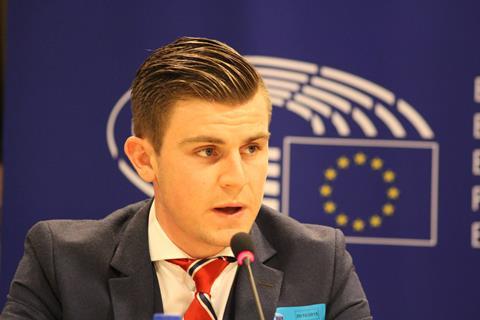
Who? Darragh Mackin, partner and head of public law, inquests and inquiries at Phoenix Law, Belfast.
Why is he in the news? Led the legal team representing Irish rapper Liam Óg Ó hAnnaidh, better known by his stage name Mo Chara, who had a terrorism charge against him thrown out by the chief magistrate for England and Wales due to an error in the way it was brought.
Thoughts on the case: ‘Not only did this case raise complex and novel legal issues inside the courtroom, but it provoked wider debate as to freedom of artistic expression. Before adjudication of the substantive issues, the court was asked to determine the question of jurisdiction. Unfortunately for us, the question over jurisdiction was much more complicated than the mere question of whether the date of the charge was within six months. This involved a detailed analysis of the underpinning provisions, including the terrorism act and the circumstances in which consent is ordinarily obtained. What first appeared a complex legal issue ultimately had a straightforward answer. Consent ought to be obtained when the prosecution was initiated. Here, it was initiated on 21 May 2025, one day before consent was duly applied for. As an avid legal nerd, the only thing that trumped the exuberance of the complex legal labyrinth was the privilege of appearing alongside a team of legal greats, including my longstanding hero Gareth Peirce.’
A Crown Prosecution Service spokesperson said: ‘We are appealing the decision to dismiss this case as we believe there is an important point of law which needs to be clarified.’
Dealing with the media: ‘Unfortunately, our experience in this case has been a much more enjoyable one than the attorney general’s, who seems to have borne the brunt of the blame for the “out of time” charge. Particularly unfair in circumstances which, when properly analysed, it is clear that by the time the AG had been asked for consent, the matter was already one day out of time. Aside from this (very forgivable) mistake, I think the media deserve immense credit for their work on this case, in continuing to ensure that it remained in the public spotlight given its widespread importance to the freedom of expression.’
Career high: ‘The verdict of unlawful killing in the Stardust Fire Inquest. After 40 years of campaigning, the reaction of those families in court that day will never leave me.’
Career low: ‘Having to cancel and reschedule my honeymoon due to a clash with a hearing. A very unhelpful precedent which, after eight years, is still often cited against me.’































